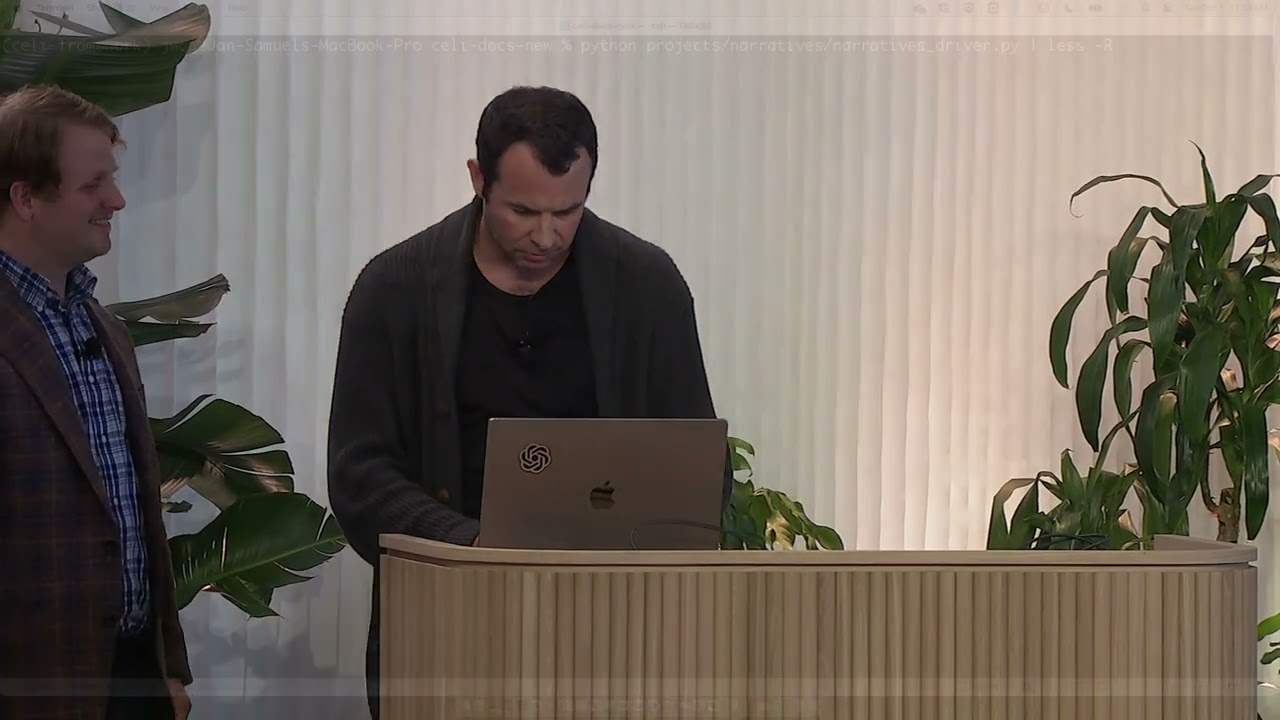In the OpenAI DevDay 2024 presentation, Scott from Genmab discusses the company’s innovative AI framework, CELI, which streamlines the generation of regulatory documents for clinical trials, significantly reducing the time and labor involved in the process. By leveraging AI to enhance accuracy and efficiency, Genmab aims to expedite clinical trials and improve access to life-saving treatments for patients.
In the OpenAI DevDay 2024 presentation, Scott from Genmab introduces the company’s innovative use of AI agents to expedite the clinical trial process. He emphasizes the lengthy and costly nature of clinical trials, which can take over eight years and billions of dollars to develop a single medicine. Genmab, a biotech company focused on biology and antibodies, is committed to not only adopting AI but also advancing its capabilities to improve efficiency in clinical trials.
Scott explains a specific use case where AI is applied to streamline the generation of regulatory documents required for clinical trials. These documents, which summarize patient data and experiences, are crucial for regulatory submissions and require meticulous attention to detail. The traditional process involves skilled clinicians sifting through extensive data to compile accurate summaries, which is time-consuming and labor-intensive. Genmab aims to leverage AI to enhance this process and achieve near-perfect accuracy in document generation.
The presentation introduces CELI, Genmab’s AI framework designed to facilitate document generation. Scott outlines the architecture of CELI, which utilizes a language model that can understand natural language inputs, plan tasks sequentially, and self-correct as it progresses. This iterative approach allows the AI to build on previous steps, ensuring that it can converge on the required 100% accuracy for regulatory documents. The framework is designed to handle the complexities of clinical trial data while maintaining the necessary precision.
Sam Wagner, a team member at Genmab, demonstrates CELI in action. He explains how the system initializes with a series of prompts that outline the document drafting process. As CELI progresses through tasks, it retrieves necessary information and maintains context, allowing it to draft sections of the document efficiently. The AI’s ability to anticipate future needs based on current tasks enhances its effectiveness, significantly reducing the time required to complete the documentation process.
Scott concludes the presentation by highlighting the potential impact of their AI-driven approach. By significantly reducing the time needed for document generation, Genmab can accelerate the clinical trial process, ultimately providing faster access to life-saving treatments for patients with serious diseases. The team invites collaboration and interest in their open-source initiatives, emphasizing their commitment to solving critical healthcare challenges through innovative AI solutions.
